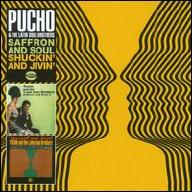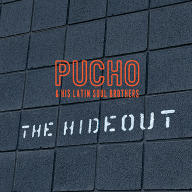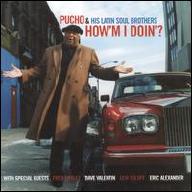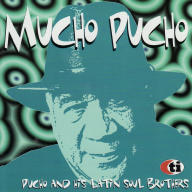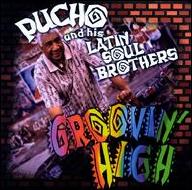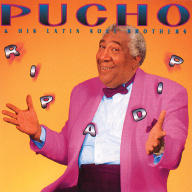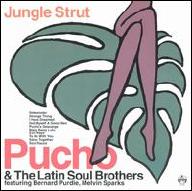As a Harlem teenager, Henry Pucho Brown cultivated a simultaneous deep and abiding passion for jazz, rhythm & blues, and mambo. In the late '50s, he served for several years in the band of pianist Joe Panama. When the band split in 1959, Pucho formed his own outfit. Even before he'd cemented his reputation on record, his band attracted notice from top Latin jazzmen.
Pucho began recording in 1963 and really hit his stride between 1966 and 1970, when he cut over nine albums for Prestige. On these, he helped pioneer a style termed Latin boogaloo, which mixed jazz, New York-style Latin music, R&B/soul, and the sort of funk that was just emerging from James Brown and other performers. Pucho wasn't afraid to mix up his material on his LPs, which placed originals by Brown and the Latin Soul Brothers next to covers of tunes by Herbie Hancock, the Temptations, the Beatles, Duke Ellington, and John Barry. When his brand of Latin soul/jazz fusion started to fall from commercial grace in the early '70s, Pucho disbanded the Latin Soul Brothers. In the early '90s, however, his back catalog began to generate interest in Britain, where he was a hit with the acid jazz crowd, and where several albums were reissued by the Ace label. Happily, he made a return to Latin-soul-jazz-funk with his 1995 comeback effort, Rip a Dip and Jungle Strut, and toured almost incessantly behind them as well as playing live sets by DJs Gilles Peterson, A Guy Called Gerald, and Kirk Degiorgio. Two more albums followed in 1997, Mucho Pucho and Groovin' High, as the group continued touring across Europe and Asia. In 1999 they dropped Caliente con Soul! for Ubiquity's Cu-Bop imprint and followed it with How'm I Doin'? for Minnesota's Cannonball label, which featured guest spots by trombonist Fred Wesley, flutist Dave Valentin, saxophonist Eric Alexander, and trumpeter Lew Soloff. After a series of residencies and club gigs in various major American cities, Pucho His Latin Soul Brothers cut The Hideout -- titled for an infamous West Harlem club the band played in a lot during the '60s. Produced by Todd Barkan and recorded by Katherine Miller, the set included killer covers of tunes by Stevie Wonder, Les Baxter, Bebo Valdez, and Clyde Stubblefield, among others. Pucho's band continue to tour, but stopped recording. ~ Thom Jurek, Rovi


